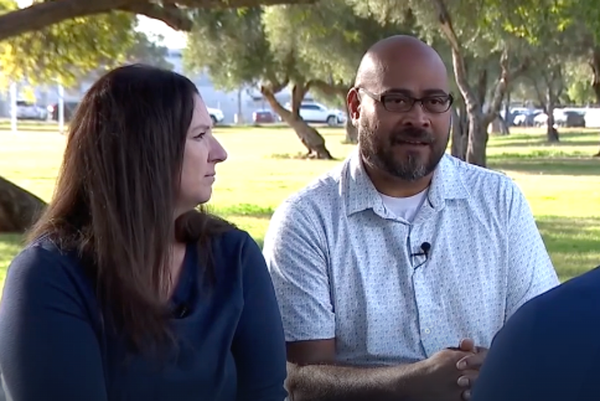It would be tempting to hear the latest words to hit the Cambridge Dictionary and simply roll your eyes with disdain. “Skibidi”, “delulu”, “tradwife”, “broligarchy” – what have these to do with anyone over the age of 30, save being more evidence that our reign of cultural relevance is over?
I had to fight the desire to do this myself, a millennial now past the point of knowing what’s what, let alone what’s hot. “Skibidi?”, I thought despondently; I didn’t even recognise the three syllables already so established as to have been accepted into the latest compilation of the English language.
But delve a little deeper, and the new zeitgeist vocab getting the official nod gives a slightly more disturbing insight into the state of the world right now – and the corresponding challenges faced by young people.
First off, before you shake your head and proclaim that these words represent nothing but a momentary fad, Cambridge Dictionary lexical programme manager Colin McIntosh has made it very clear that “we only add words where we think they’ll have staying power”, adding that “internet culture is changing the English language”. This lies at the heart of it; TikTok and YouTube now hold enough sway that the lexicon itself is evolving around them.
Skibidi, for the uninitiated, derives from Skibidi Toilet, a web series featuring toilets with singing human faces coming out of their bowls who are at war with a humanoid race of characters with electronic devices for heads. The series has gained viral acclaim and spawned thousands of memes on social media since it launched in 2023, becoming so popular with Gen Alpha that the #skibiditoilet hashtag had garnered 23 billion views on TikTok by July last year, while the word “skibidi” has entered common parlance. Even if you’ve avoided the whole thing thus far, you won’t be able to for much longer – a major movie, rumoured to be directed by Michael Bay, is in development.
The word itself is not easily explained. Cambridge Dictionary’s definition states that it “can have different meanings such as ‘cool’ or ‘bad’, or can be used with no real meaning as a joke” – an example of its use being: “What the skibidi are you doing?”
The videos feel vaguely unsettling – the jerky movements of the heads, the way they suddenly launch towards the screen to create “jumpscares”, even the jarring, repeated nonsense songs – though this isn’t necessarily anything new. As a teen in the Noughties, I distinctly remember everyone obsessively watching the creepy and surreal online video series called Salad Fingers (responsible for the phrase “I like rusty spoons” being quoted ad infinitum during my university years).
But, unlike videos made during those early days of internet streaming, Skibidi Toilet is part of a tranche of short-form content that’s become synonymous with “brain rot”. This term (itself named Oxford Word of the Year for 2024) describes the idea that the excessive consumption of low-quality, repetitive online content makes us, well, stupider. It’s particularly associated with quickfire videos designed for short attention spans, with little in the way of discernible plot or language – content that is, essentially, meaningless. A sobering reflection, perhaps, of a generation that look around and see little that can be made sense of amid the looming threat of war, climate change, extremist politicians and AI, with the digital world increasingly taking the place of real-life interactions and relationships.
Then there’s “delulu”, an abbreviation for “delusional”. As in, “she’s totally delulu.” In and of itself, this might not seem too troubling. And yet its entry into the vernacular has coincided with the notion of a “post-truth” world in which conspiracy theories and “fake news” spread like wildfire across the internet, and known facts are no longer a match for unproven beliefs. You only have to look at the anti-vax movement, flat-earthers or the growth of QAnon-style platforms to understand why a word defined by Cambridge Dictionary as “believing things that are not real or true, usually because you choose to” might come into its own.
Delve a little deeper, and the new zeitgeist vocab getting the official nod gives a slightly more disturbing insight into the state of the world
The dark connotations behind “tradwife” – the one word I’m actually already familiar with – are even more obvious. It’s a portmanteau of “traditional wife”, but Cambridge Dictionary specifically highlights that these are not just traditional stay-at-home mothers. This, rather, is a subculture of women who are socially conservative yet very online, and is often associated with regressive, anti-feminist views on gender roles and the submissive place of women. It’s an ideology that, again, has gained traction with young people and been popularised via TikTok; as the new definition explains, this word refers to “a married woman, especially one who posts on social media, who stays at home doing cooking, cleaning, etc. and has children she takes care of”.
And finally, there’s “broligarchy”, referring to “a small group of men, especially men owning or involved in a technology business, who are extremely rich and powerful, and who have or want political influence”. Look around at the bleak state of the world, currently dominated by the likes of Elon Musk and Mark Zuckerberg – those whose oft-toxic platforms have, ironically, helped start, spread and perpetuate the very concepts expressed by this new language – and it all makes a bit more sense.
With those bros at the helm, I can rather see the appeal of tapping out, going totally “delulu”, and singing along with some skibidi toilets.







